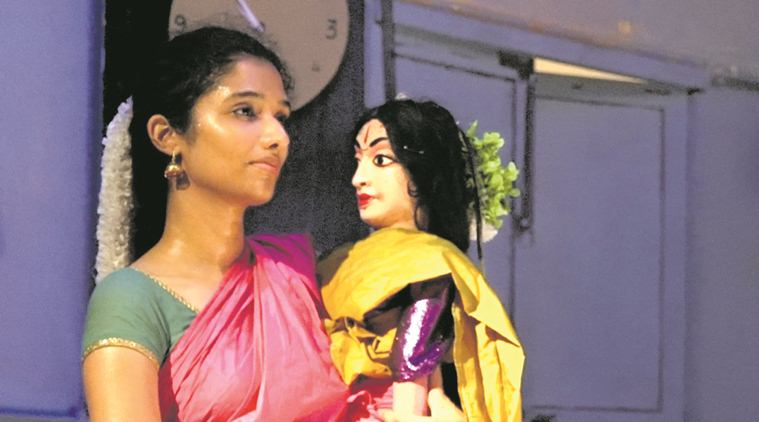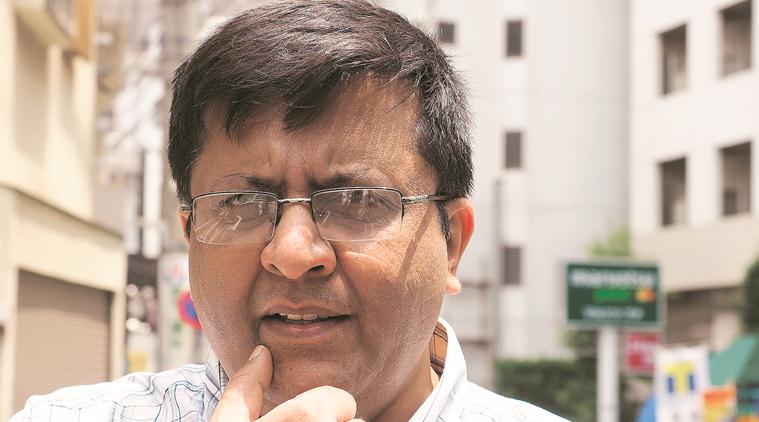
What would happen if Juliet belongs to the upper caste and Romeo does not? In 2017, a theatre group in Puducherry, called Indianostrum, decided to find an answer by adapting William Shakespeare’s Romeo and Juliet to contemporary India. As the artistes processed social realities, felt the grip of caste in love, and shaped the play, Chandala, Impure, an award-winning filmmaker, Pankaj Rishi Kumar, kept the camera rolling. The film, Janani’s Juliet, produced by Delhi-based PSBT, won the Best Long Documentary Award at the 12th Kerala Documentary and Short Film Festival in June. Chandala, Impure, too, has collected critical reviews, as well as a top honour at the Mahindra Excellence in Theatre Awards 2019.
“I had got to know Valavane Koumarane (director of Indianostrum) during the making of my previous film, Two Flags, and started documenting a lot of his work. When I heard that he was starting a new production, based on Romeo and Juliet, I wanted to film the process. It is not a simple matter to replace a family rivalry with a caste feud. I was keen to see how Valavane would negotiate this,” says Kumar. A graduate of FTII, Pune, Kumar was a well-known film editor in Bollywood, and has worked on Shekhar Kapur’s Bandit Queen, among others, until he became disillusioned and turned to making documentaries.

His first film, Kumar Talkies, explores the role of a cinema hall started by his father in Kalpi, a small town in north India, in the lives of the local people. It won the National Award for Best Audiography in 1999. The next film was influenced by theatre. Titled Pather Chujaeri (The Play Is On…), the 2001 documentary deals with the Bhand performers of Kashmir who are sustaining a centuries-old tradition despite upheavals. “I was born and brought up in Delhi, where I did plays from school. We never took a script but wrote every play as a group,” he says. This devised method of working attracted him to Indianostrum, where members participate equally in the creative processes.
“I landed on June 10, 2017, in Puducherry, and, by that time, Indianostrum had figured out what Romeo would be like but had no clue how Juliet would be,” recalls Kumar. One scene in Janani’s Juliet shows actors quizzing the director, Valvane. “We hardly see Romeo in the play; it’s all about Juliet. In the death scene, he realises the meaning of being a Chandala but what about her? When does she realise the significance of being upper caste and the difference between them?” asks one performer.
To understand Juliet, Valavane travelled 12 hours from Puducherry to meet a 23-year-old woman called Kaushalya. In 2016, armed goons from Kaushalya’s powerful family had hacked her Dalit husband to death and critically injured her. “They wanted to kill me also. If there was a baby in my womb, the purity of their caste would be lost,” Kaushalya tells the actors, in one of the most powerful moments of the film. Once he met Kaushalya, the structure of Kumar’s film fell into place: he would channel the story of Romeo and Juliet with a real-life tragedy of Kaushalya and Shankar.

Janani’s Juliet is layered with concerns, from conflicts in society to those in a theatre group during the making of a play. “I believe in layering my projects, adding one coat of meaning after another. This style, I believe, comes from my theatre days. A straightforward process of landing up and interviewing a theatre group about a play doesn’t interest me at all,” he says.
Questions of identity run strongly through Kumar’s films. Janani’s Juliet is the second film in a trilogy about Puducherry. Two Flags (2019) shows how the town’s legacy of being both French and Indian, comes across in regular events and mishaps, celebrations and sorrows.
Towards the end of Janani’s Juliet, performers stare into the camera and define love. “Love is the basis of existence. For love, no one should die,” says one. “I have never believed that people are blinded when they fall in love,” adds another. How does Kumar define the greatest emotion? “It’s a very bizarre, spiritual level of comfort between two people,” he says.